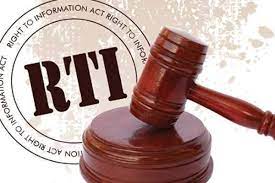The Central Information Commission has cautioned multiple Public Information Officers of the UT of Jammu and Kashmir for violating the timelines stipulated under the Right to Information Act, 2005. In one case, an RTI application filed before the Block Development Officer in Rajgarh was not responded to, leading to the appellant filing a first appeal, which was also not adjudicated by the First Appellate Authority. The appellant then approached the CIC with a second appeal. The CIC observed that adequate information had been provided, but there had been a significant delay in providing it to the appellant. The CIC cautioned the PIO to ensure such violations do not occur in the future, failing which appropriate action would be taken under the law. In another case, an RTI application was filed before the PIO in the Raj Bhawan Secretariat, but the respondent claimed not to have received the application. The CIC directed the Under Secretary to submit an explanation to the Commission. A similar note of caution has been issued to several other PIOs of the Government of the Union Territory of Jammu and Kashmir by the CIC. There could be various reasons why some PIOs defy the RTI Act. Some PIOs may not be aware of the provisions of the Act and their obligations under it. Others may lack the necessary resources or training to effectively respond to RTI applications. In some cases, PIOs may deliberately delay or withhold information due to fear of exposing corruption or malfeasance within their department or organisation. There could also be instances of bureaucratic inertia or resistance to change where PIOs may not fully appreciate the importance of transparency and accountability. The RTI Act, of 2005, provides for penalties in cases of non-compliance with its provisions. If a PIO fails to provide the requested information within the prescribed time limit or provides incomplete or false information, the applicant can file a complaint with the relevant Information Commission. The Information Commission has the power to impose penalties on the PIO, including a fine of up to Rs. 25,000 and a recommendation for disciplinary action. If the non-compliance is found to be deliberate and mala fide. Additionally, if the PIO has provided false information, they may be liable for disciplinary action and criminal prosecution under the relevant laws. It is important for PIOs to take their obligations under the RTI Act seriously and to ensure that they comply with its provisions in letter and spirit. The RTI Act acts as a deterrent, helps promote transparency and accountability in Government operations, reduces opportunities for corruption, and encourages citizen participation in the fight against corruption. The RTI Act needs to be taken seriously because it promotes transparency, enhances accountability, empowers citizens, prevents abuse of power, and encourages good governance. Frequent disregard of the RTI Act may undermine its effectiveness and diminish the confidence of the general public in the Government’s sincerity towards promoting openness and responsibility. When citizens are unable to obtain information, their ability to participate in decision-making and hold public servants accountable for their conduct is curtailed. Refusal by Government officials to share information can foster a climate that favours corrupt practices, leading to a sense of immunity among public servants who may believe they can act with impunity. It is concerning that in Jammu and Kashmir, officers are repeatedly defying the RTI Act, and it appears that no significant action is being taken against them. This is a serious issue, as the RTI Act is a crucial tool in ensuring transparency and accountability in governance. It is essential that the authorities take the necessary action to ensure compliance with the Act, and those who violate it must be held accountable for their actions. Failure to take any action against those who defy the RTI Act undermines the very purpose of the Act and erodes public trust in the Government


